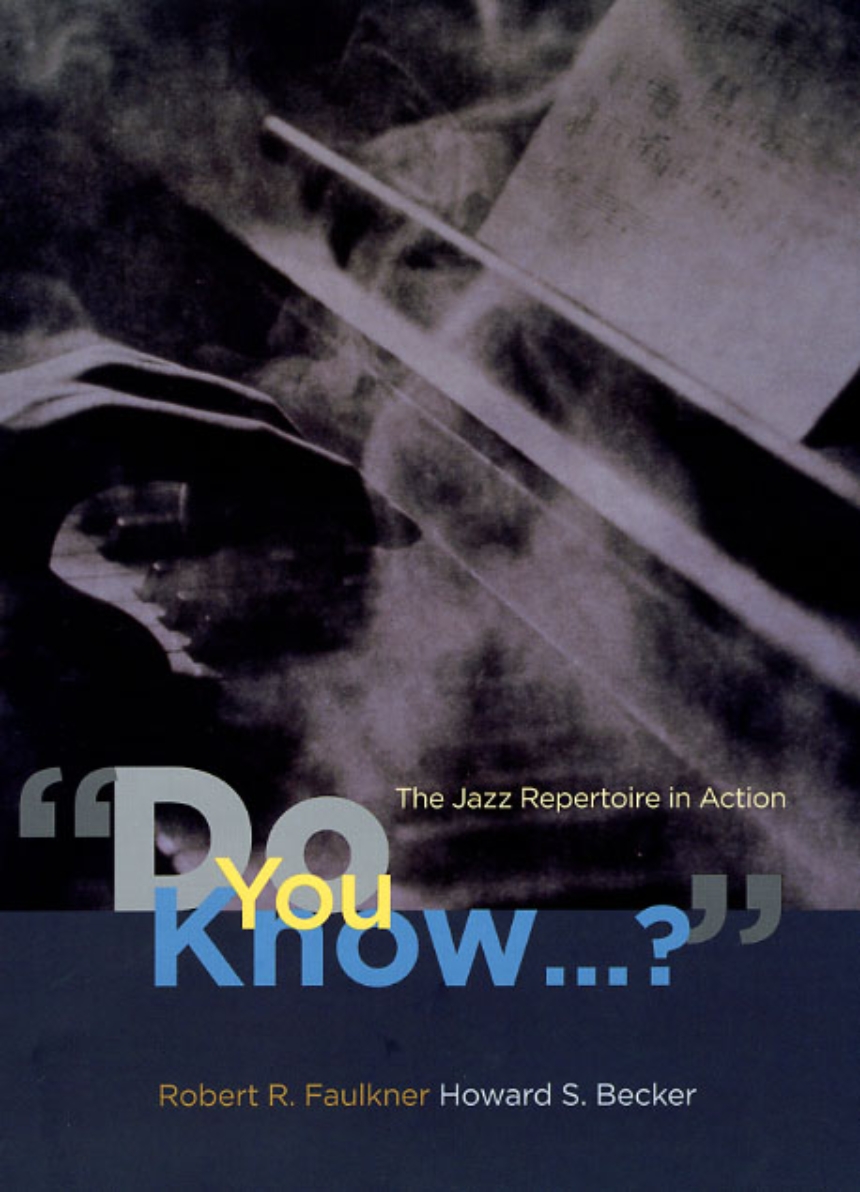"Do You Know...?"
The Jazz Repertoire in Action
Every night, somewhere in the world, three or four musicians will climb on stage together. Whether the gig is at a jazz club, a bar, or a bar mitzvah, the performance never begins with a note, but with a question. The trumpet player might turn to the bassist and ask, “Do you know ‘Body and Soul’?”—and from there the subtle craft of playing the jazz repertoire is tested in front of a live audience. These ordinary musicians may never have played together—they may never have met—so how do they smoothly put on a show without getting booed offstage.
In “Do You Know . . . ?” Robert R. Faulkner and Howard S. Becker—both jazz musicians with decades of experience performing—present the view from the bandstand, revealing the array of skills necessary for working musicians to do their jobs. While learning songs from sheet music or by ear helps, the jobbing musician’s lexicon is dauntingly massive: hundreds of thousands of tunes from jazz classics and pop standards to more exotic fare. Since it is impossible for anyone to memorize all of these songs, Faulkner and Becker show that musicians collectively negotiate and improvise their way to a successful performance. Players must explore each others’ areas of expertise, develop an ability to fake their way through unfamiliar territory, and respond to the unpredictable demands of their audience—whether an unexpected gang of polka fanatics or a tipsy father of the bride with an obscure favorite song.
“Do You Know . . . ?” dishes out entertaining stories and sharp insights drawn from the authors’ own experiences and observations as well as interviews with a range of musicians. Faulkner and Becker’s vivid, detailed portrait of the musician at work holds valuable lessons for anyone who has to think on the spot or under a spotlight.
192 pages | 2 halftones, 6 line drawings | 6 x 9 | © 2009
Music: Ethnomusicology, General Music
Sociology: Collective Behavior, Mass Communication, Occupations, Professions, Work, Sociology of Arts--Leisure, Sports
Reviews
Table of Contents
Preface
1 How Musicians Make Music Together
2 Repertoire as Activity: The Basic Elements
3 Learning Songs and Building an Individual Repertoire: Sources
4 The Skills You Need to Play the Contents of the Song Reservoir
5 Things Change: The Organization of Musical Life
6 Things Change: The Music
7 On the Stand: Putting Repertoire to Work
8 The Results of Bandstand Dynamics
9 Playing the Repertoire Game: What We Wanted to Know and How We Learned to Ask a Better Question
Appendix: How We Did the Research
References
Index